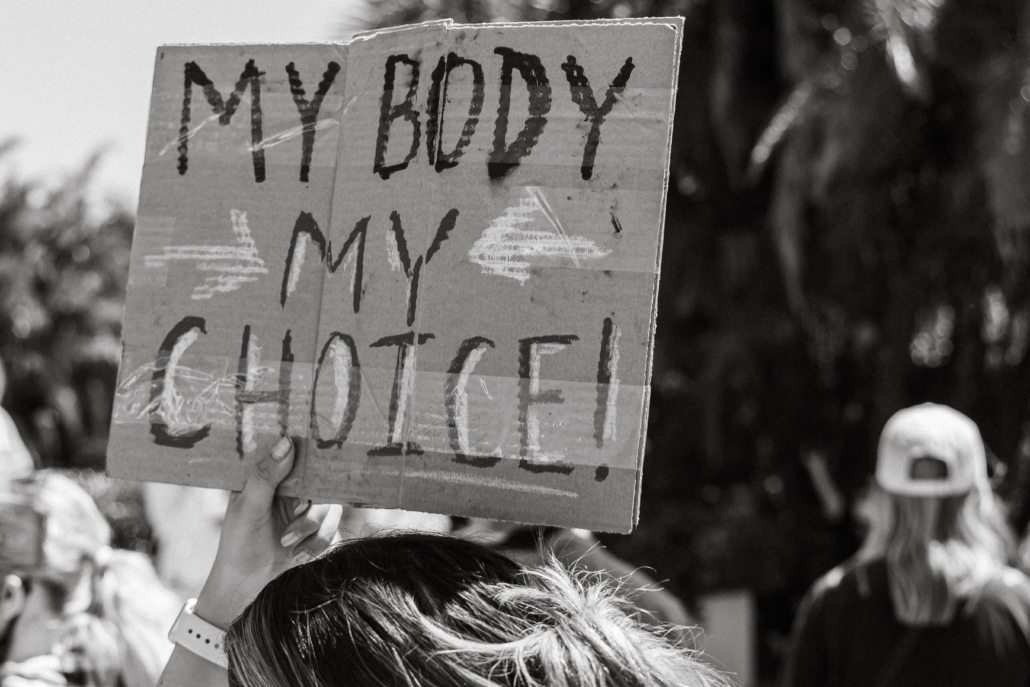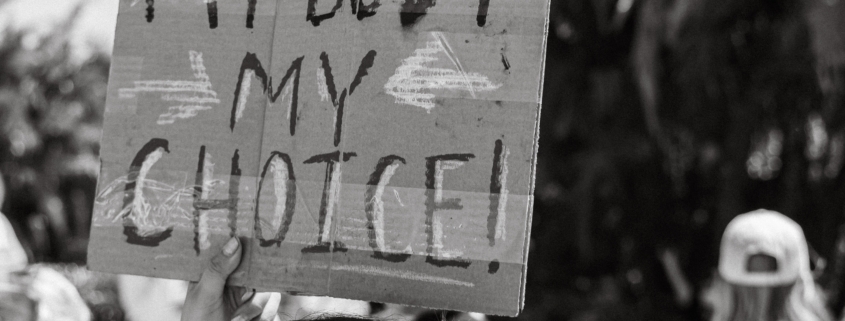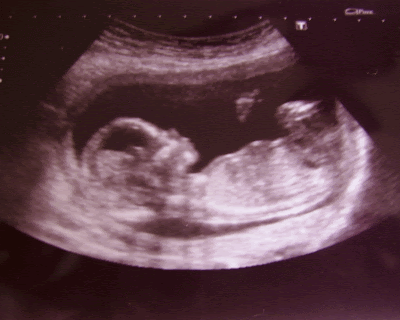My Journey from Pro-Choice to Pro-Life

[Today’s guest author is anonymous.]
1972 – Prior to Roe v Wade I marched to the Minnesota State Capitol with other young women from my high school with a sign reading “Keep the State Out of My Vagina!” A 15-year-old friend had a legal abortion arranged in New York by her family. If I had gotten pregnant in my teen years, I’m sure I would have found a way to have an abortion.
When I was 20, I had a friend/roommate who worked at an abortion clinic as a medical assistant. Her work included the task of measuring the feet of the products of 1st-trimester abortions, which helped to assign a gestational age. I thought that abortion involved suctioning a clump of cells, not an organism with measurable feet. My friend didn’t seem bothered by the work she did, and even joked about it in a macabre, gallows humor way. This was a turning point for me. I began to look at the abortion issue not just from a woman’s bodily autonomy perspective, but with consideration for what was being aborted.
This eventually led me to the library (pre-internet) on a mission to study biology, medicine and law: I sought documentation on embryology, pregnancy, the practice of abortion and the legal justification that was now the law of the land as a result of Roe v. Wade. I concluded that abortion intentionally ends the life of an innocent living human being whose protected rights should logically equal those of a newborn.
Once I knew that a baby is a baby from the earliest stages, I couldn’t un-know it. I couldn’t identify a point in pregnancy when it was not true one day and true the next, or true for a wanted pregnancy but not for an unwanted one. (With time and ultrasound technology, the evidence only became clearer.) As a feminist, I struggled to reconcile this knowledge with a woman’s right to control her body and define her future, but could not dismiss the fact that a human life was sacrificed with every abortion choice.
During my early 20s, 1975-79, abortion was common among my peers. I saw women experience a range of reactions including relief, sadness and grief. Typically the men who planted the pregnancies avoided a lifetime of responsibility with the easy availability and social acceptance of a $300 abortion. Some of the women celebrated their abortions almost as a rite of passage and some men felt bereft and helpless, without a voice in the abortion decision.
At age 23, single, working part-time, living with roommates, drinking and smoking, I learned I was pregnant. There was an obvious path to take. The nurse who announced the positive test result asked glumly, “What are you going to do?” My friends offered to accompany me to the abortion clinic. My boyfriend of 8 months said, “You don’t have to have it.” I was scared and distraught. I didn’t tell my family. No one in my circle offered support for the choice to have the baby, but that’s what I knew I would do, alone if necessary, despite the challenges.
As often happens, the unwelcome fetus at 2 months became a very wanted and loved baby by the end of 9 months, and forever after. Abortion for me would have been a permanent solution to a temporary problem. I learned that love can find a way.
It’s possible that my life would have been easier, better, more comfortable or successful if I had chosen abortion in 1979. Or maybe my life would have taken a nosedive. There’s no way to know. I do know that the unique, clever, compassionate, smart and charming person who is my oldest son would not have existed in this world.
I have great empathy for women with unplanned and unwanted pregnancies. There are difficult circumstances that present real problems and love is not always enough.
I believe women deserve better options. They deserve admiration and support for the miraculous and difficult job of growing a person. They deserve the same educational and workplace opportunities as non-pregnant people. They deserve free medical care, generous paid family leave policies, quality child care options and government support.
I don’t judge women who have made an abortion decision, and I don’t want women criminalized. Too many have been pressured or coerced into ending their pregnancies by circumstances, partners or a lack of meaningful resources.
In a perfect world, unplanned pregnancies would be prevented, men would step up to take responsibility, mothers would have what they need and we would love both women and babies before and after birth.
Unfortunately, it’s an imperfect world, and I know that I won’t see a consensus on abortion in my lifetime. I accept that, and only hope to have my perspective understood by people I care about.
[Photo credit: Reed Naliboff on Unsplash]




Leave a Reply
Want to join the discussion?Feel free to contribute!